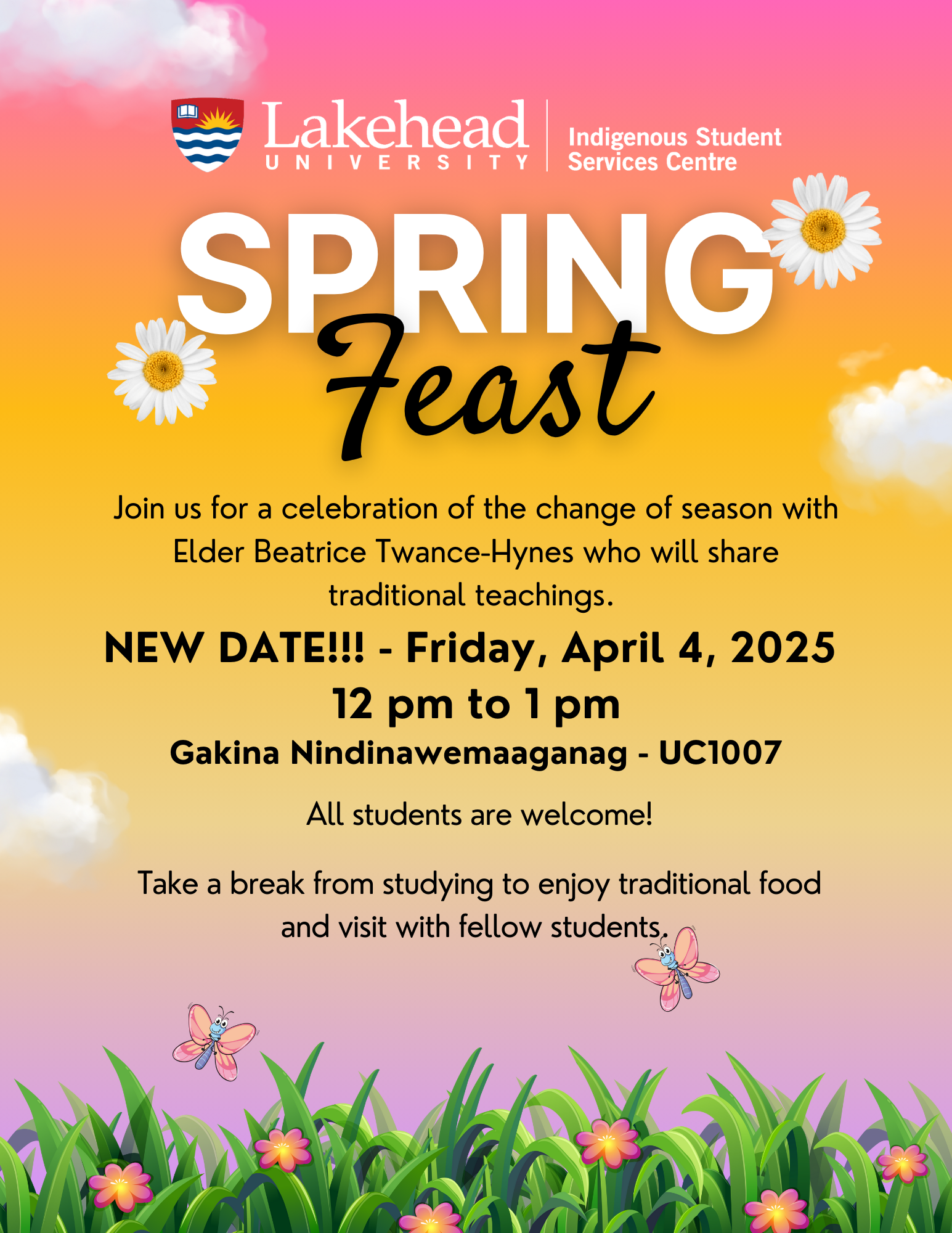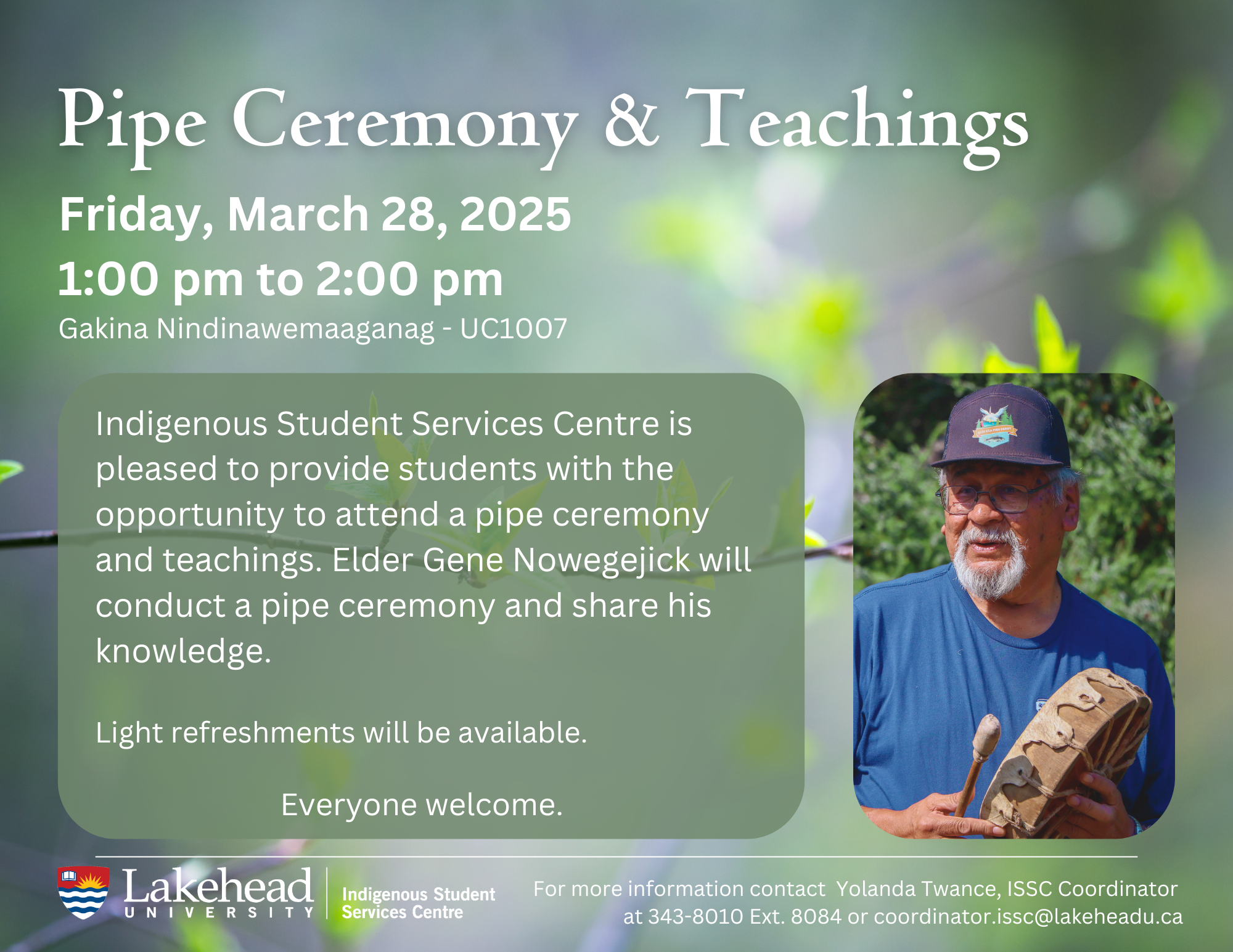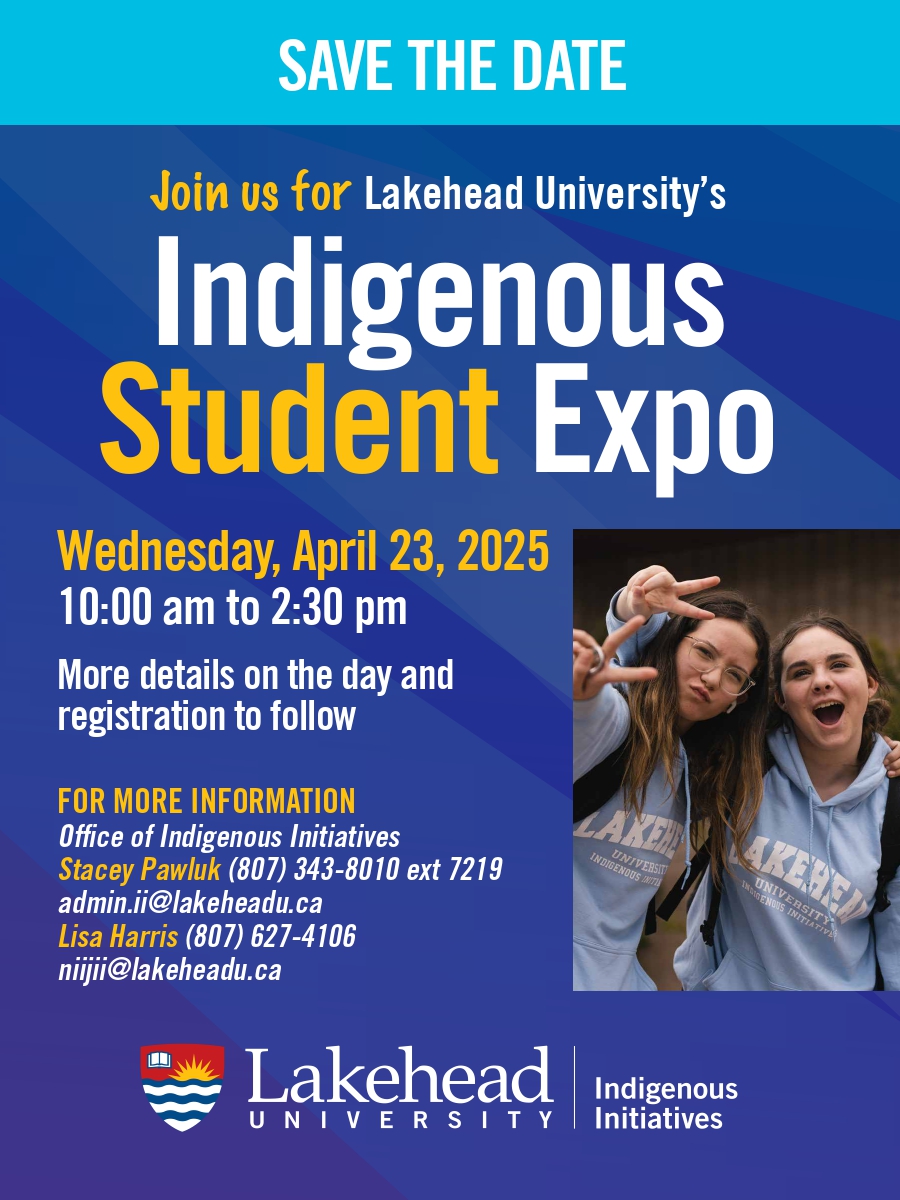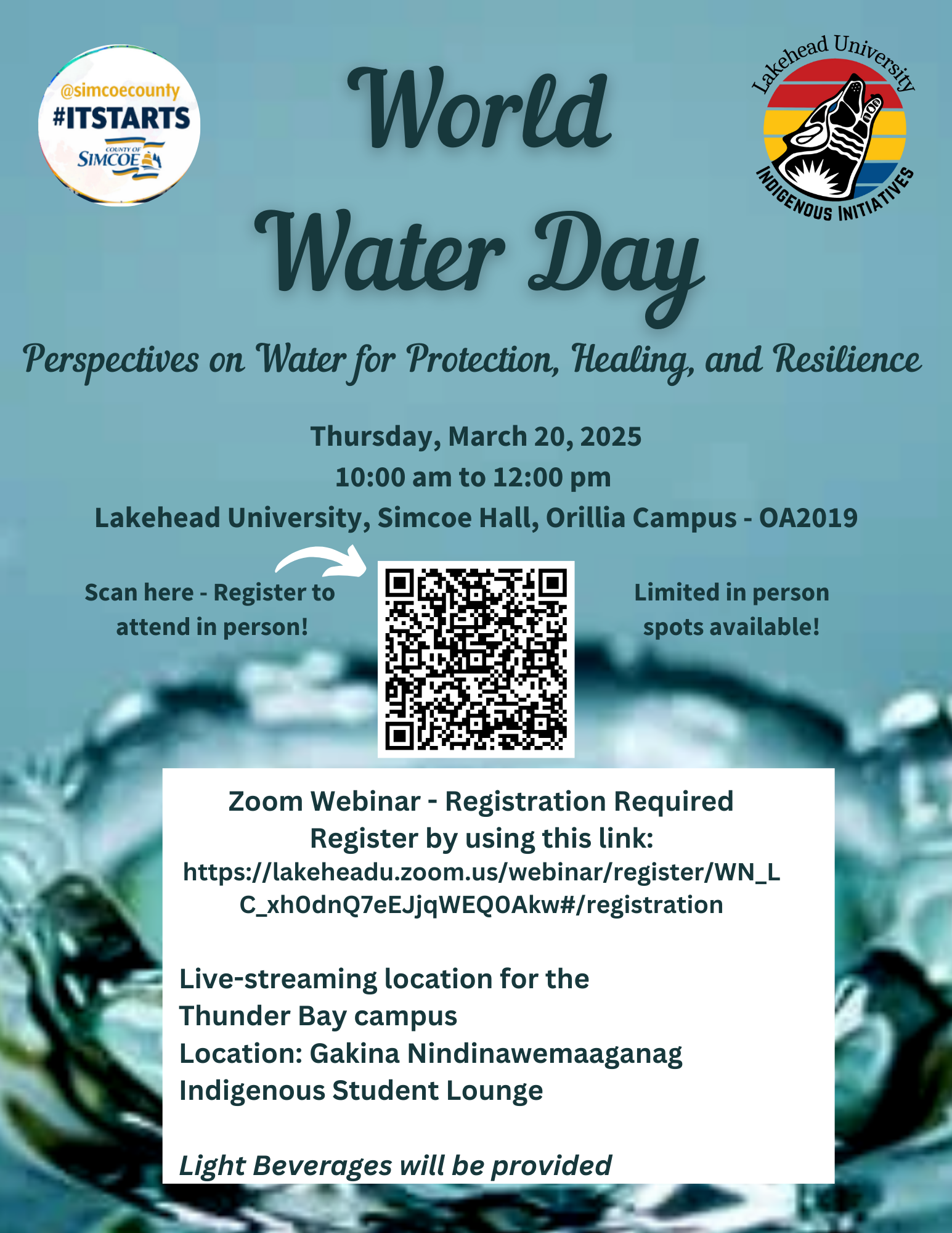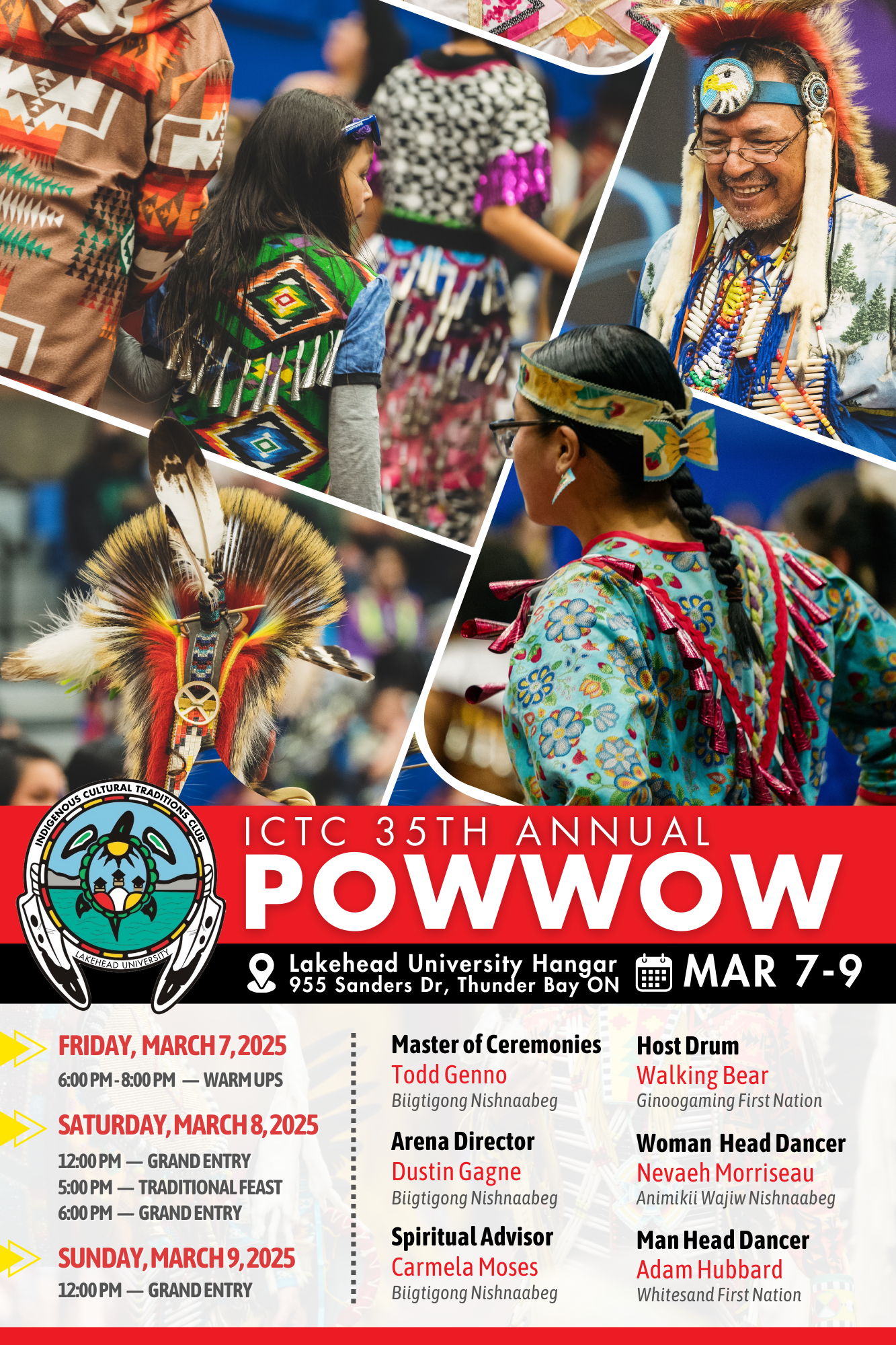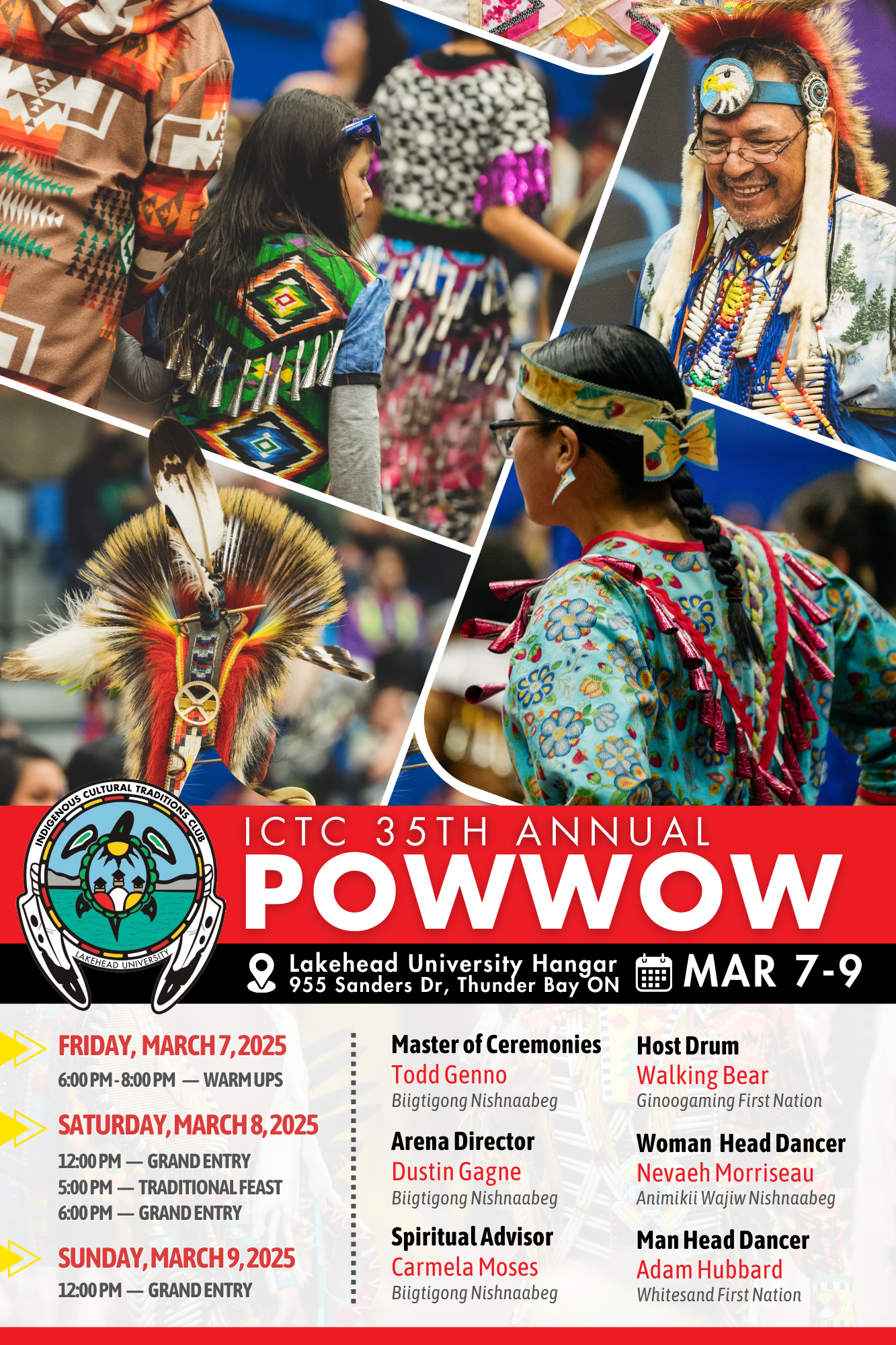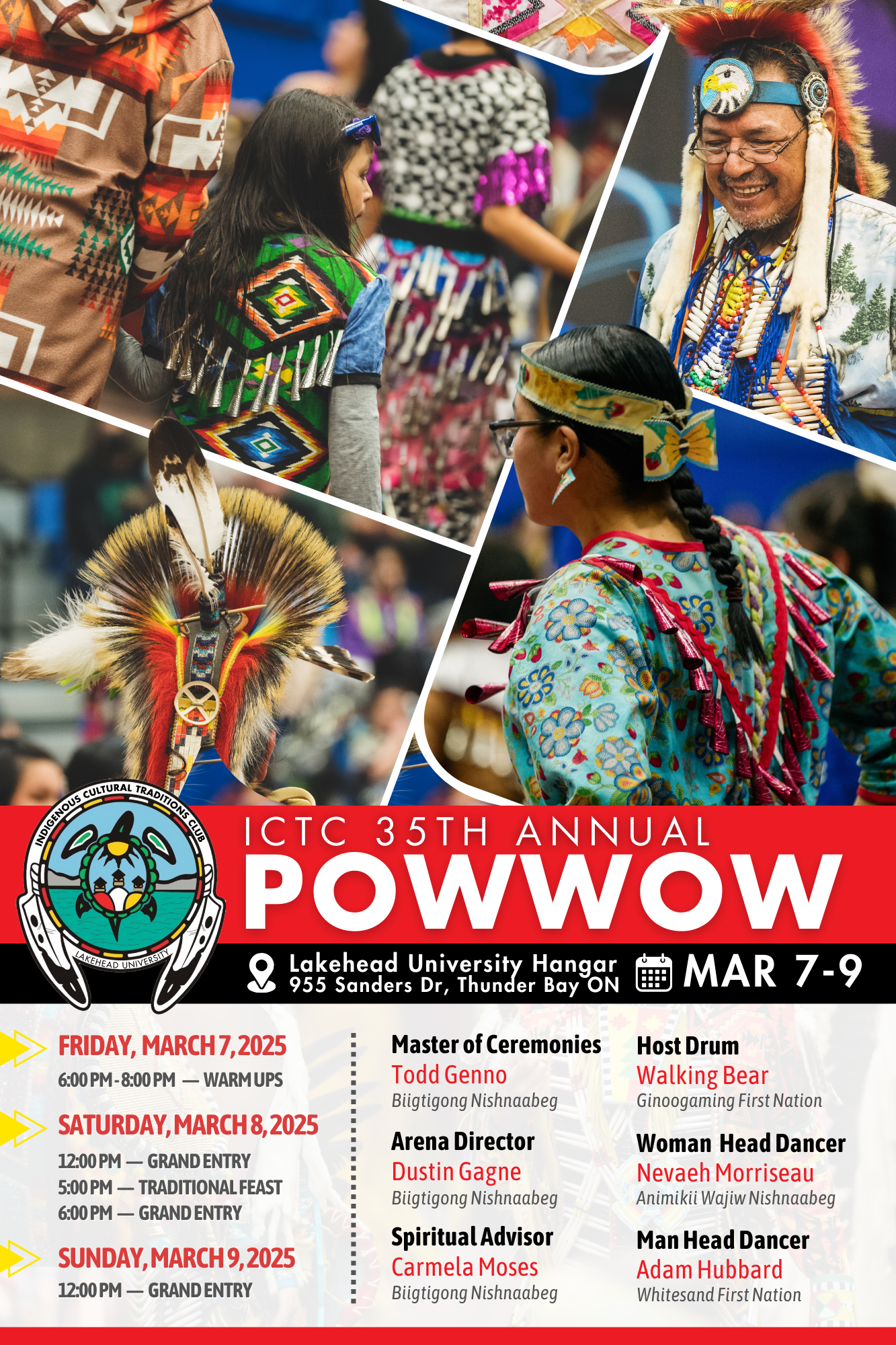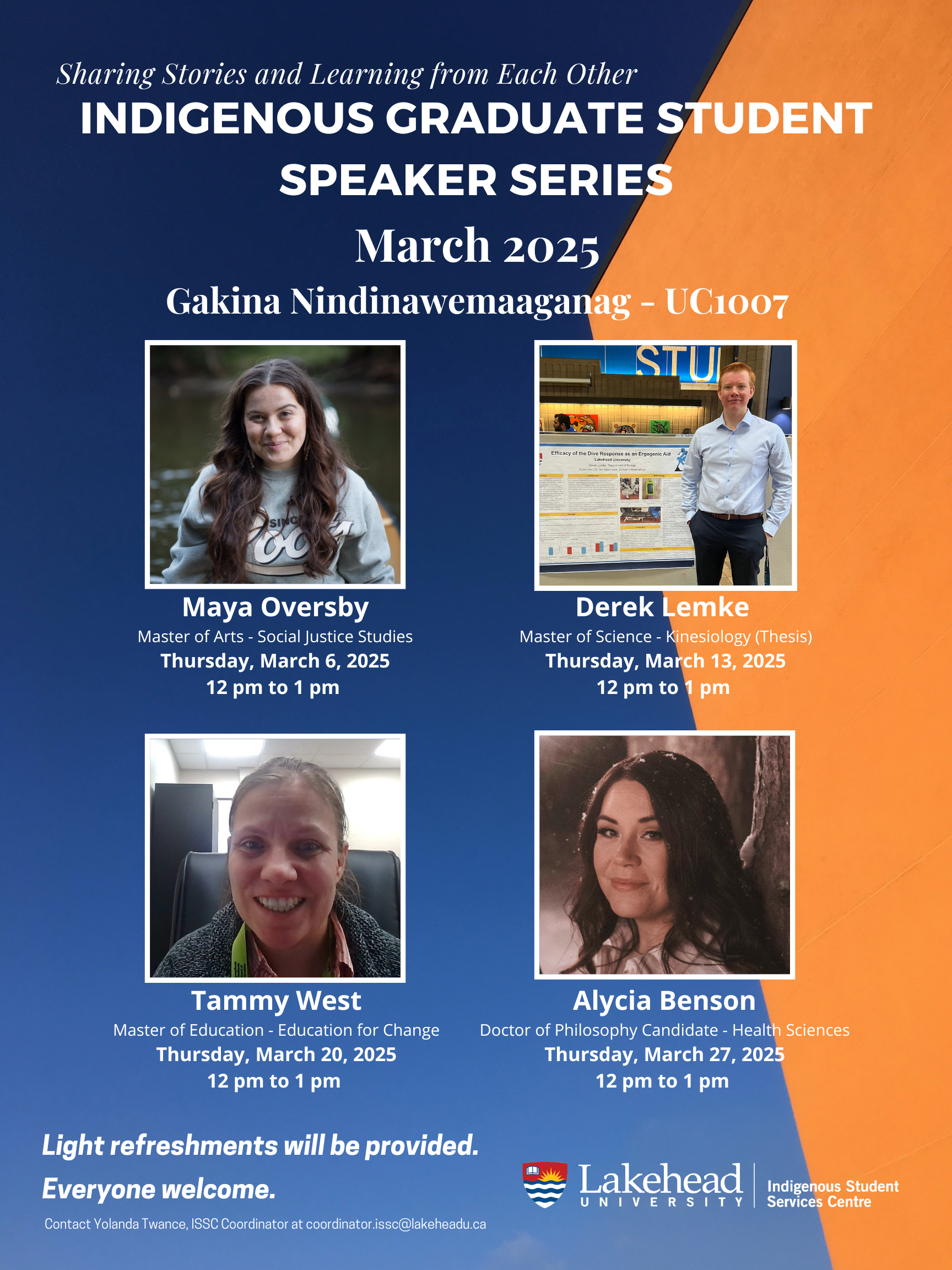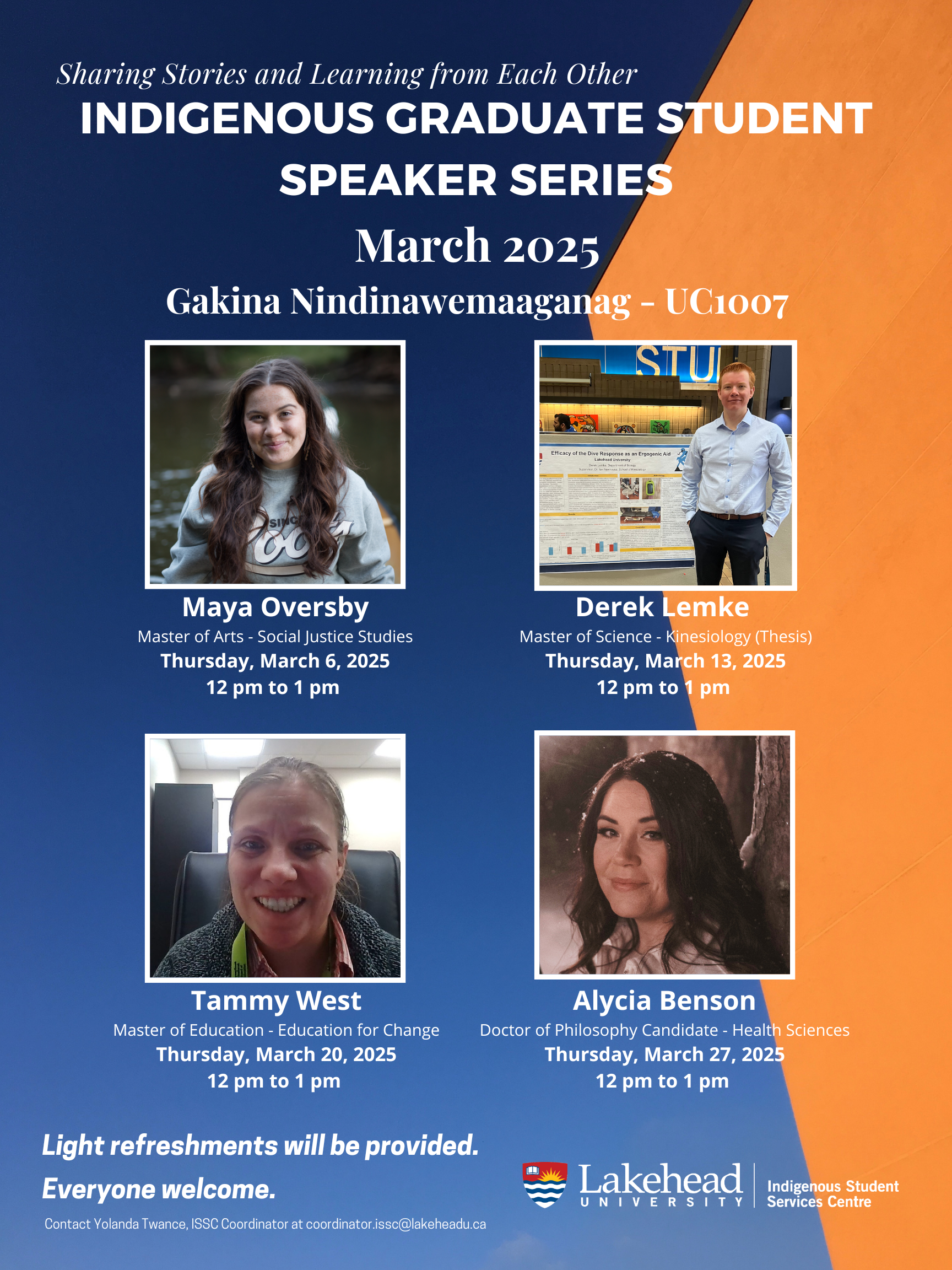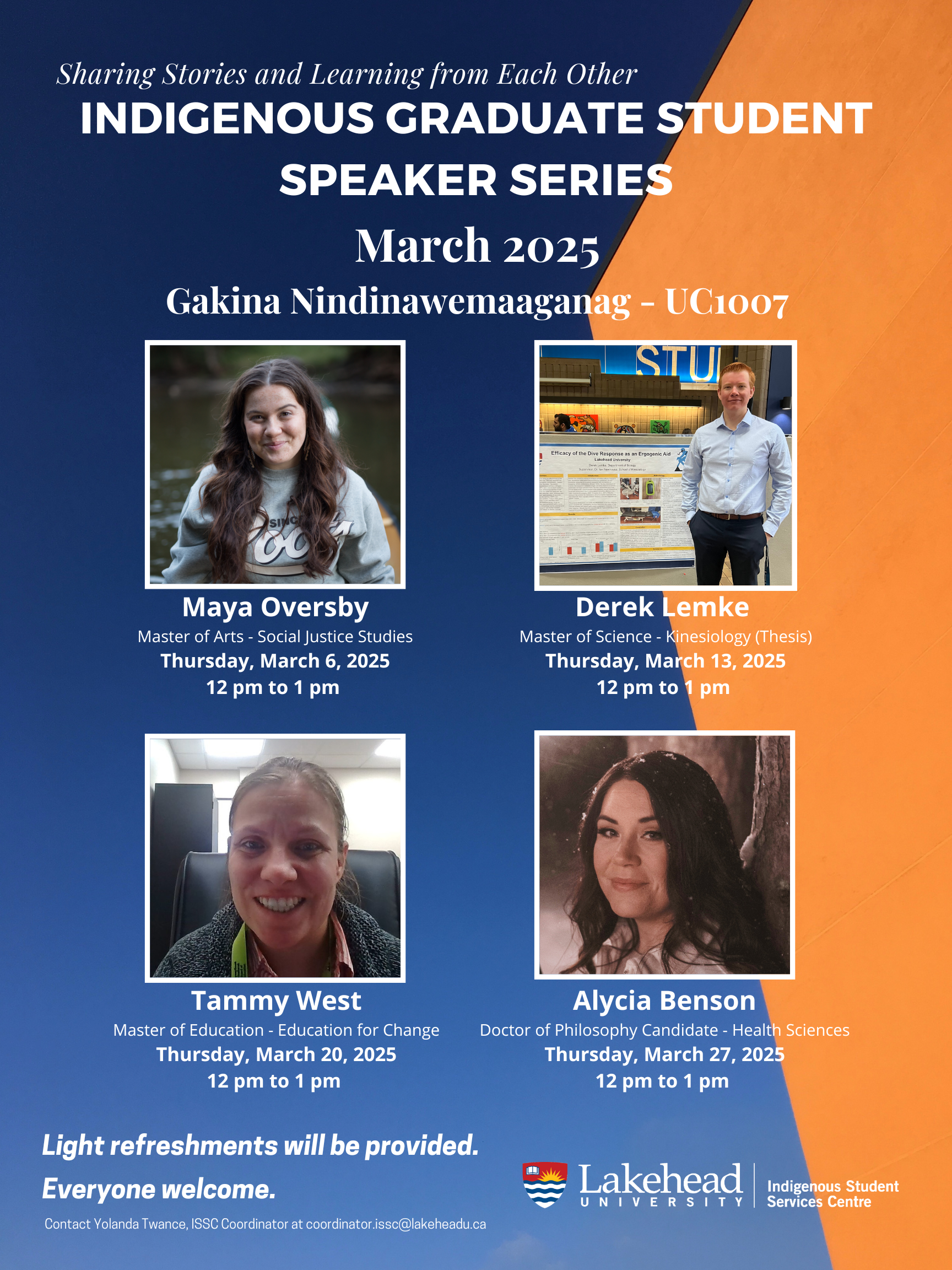To register for this event in person (Orillia Campus): https://forms.gle/7JmW848ZJfD5Wx9o8
To register for this event via Zoom (Thunder Bay Campus): https://lakeheadu.zoom.us/webinar/register/WN_LC_xh0dnQ7eEJjqWEQ0Akw#/re...

Elder Vicki Pavis, also known as “Auntie Vicki” is a member of Rama First Nation, a community part of the Williams Treaties and located adjacent to Orillia, Ontario on Lake Couchiching. She carries traditional teachings and wisdom passed onto her by her teachers and mentors throughout the years. Auntie Vicki has been a voice for healing in the community for those experiencing the effects of residential school and the sixties scoop, and the intergenerational trauma that continues to impact the younger generations of Indigenous people. Her work to promote healing through learning Indigenous cultural practices is seen whenever she speaks to young people and when she is called upon to provide cultural programming in different areas throughout the community. Auntie Vicki is also an accomplished artisan and is always open to sharing her skills in beadwork. She will share her knowledge of the water and will lead a water ceremony for participants at the World Water Day Event at Lakehead University on March 20, 2025.

Vicki Monague is Pottawatomi-Ojibwe, and an Anishinaabe Kwe from Beausoleil First Nation, also known as Chimnissing and Christian Island. Her community is located near Midland, Ontario on the beautiful shores of Georgian Bay, part of the Williams Treaties and historic Coldwater Settlement. Vicki is a traditional knowledge keeper, a fluent language speaker, a water protector, and a Lakehead alumni and scholar. Her spirit name is Mzhakdo Kwe and she is from the Wolf Clan. Vicki is a committed water protector and activist. She was one of the lead activists at Site 41, taking action with everyday citizens to prevent the building of a proposed landfill over the Alliston aquifer in 2009. She has protested nuclear shipment and nuclear dump on Lake Huron and the Great Lakes since 2011, and led a 17-day, 822-kilometre Water Walk around Georgian Bay in 2013. Vicki’s academic achievements include a Bachelor of Arts in Political Science and a Master of Education degree. Her work has taken her from serving her community as band councillor, teaching Indigenous Studies and Ojibwe language, to now contract lecturer with the faculty of education at Lakehead University’s Orillia campus, all while running a business as an Indigenous woman entrepreneur. She has a passion for promoting the Ojibwe language and Anishinaabe cultural worldview in all that she does personally and professionally. Her traditional teachings about the water elevate the importance of water for healing and resilience, while her water activism promotes the idea that we all have a sacred responsibility to protect the water for future generations.

Dr. Juan Guillermo Sánchez Martínez was born in Bakatá/Bogotá, in the Colombian Andes. He is a mixed-race bilingual educator and scholar, holding ancestral knowledge and wisdom of the water through cultural expressions of art, poetry, and story. He coordinates the online multilingual anthology and exhibition Siwar Mayu, A River of Hummingbirds. He has published the following books of poetry: Uranio (2023), Bejuco (2021), Salvia (2014), Rio (2010), and Altamar, awarded with the National Prize in Columbia in 2016 (University of Antioguia). He is the author of Memoria e invención en la poesía de Humberto Ak’abal(Abya-Yala, 2012). In 2019, he co-edited the volume Muyurina y el presente profundo with Quechua writer Fredy Roncalla (Pakarina/Hawansuyo), and he is currently co-editing Abiayalan Pluriverses. Bridging Indigenous Studies and Hispanic Studies with Gloria E. Chacón and Lauren Beck (Amherst College, 2024). He is an Associate Professor in the Department of Indigenous Learning at Lakehead University’s Thunder Bay campus. Dr. Sánchez Martínez has collaborated with UNESCO on various forums on water protection and the impacts of climate change on mother earth. He is also part of the Indigenous Environmental Network to promote Indigenous perspectives on water through water anthologies, with Anthologies on Water 2.0 being released this year.
